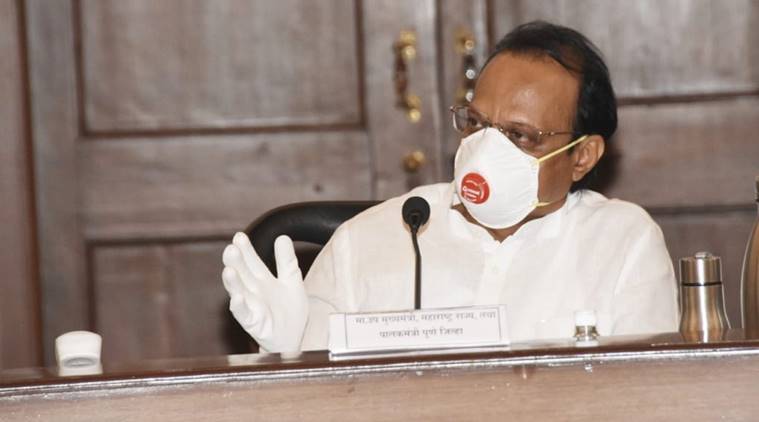 Pawar held a meeting with senior officials from the district administration, civic bodies, elected representatives, health officials and police on Friday. (Twitter/@AjitPawarSpeaks)
Pawar held a meeting with senior officials from the district administration, civic bodies, elected representatives, health officials and police on Friday. (Twitter/@AjitPawarSpeaks)
Deputy Chief Minister and Pune District’s Guardian Minister Ajit Pawar on Friday directed the district administration and local police to exercise stringent control on movement in ‘COVID-19 hotspots’ in Pune and Pimpri-Chinchwad.
Pawar held a meeting with senior officials from the district administration, civic bodies, elected representatives, health officials and police on Friday and expressed concerns over the rate at which new cases were being reported in the city.
Pawar said strict restrictions were needed to be put in areas that have emerged as hotspots, adding that ‘Baramati pattern’ of control over the movement of residents should be followed to ensure the lockdown rules are not violated.
“Senior civic officials should be allotted specific hotspot areas so that they can manage them minutely. Senior administrative officers, who were recently appointed on the COVID-19 team, should take active participation in this. All officials should plan minutely and implement the plan effectively to reduce the spread of coronavirus in these areas,” said Pawar.
The deputy chief minister said testing should be sped up in areas with higher population density and latest techniques be used for the same. “In slum areas, step up cleanliness work. Distribute masks and sanitisers in these areas,” he added.
Pawar said residents of containment areas should not be allowed to move out and police should ensure that residents don’t violate the rules.
“I also appeal to citizens to follow the instructions issued by us about social distancing, taking precautions, use of hand wash, sanitisers and masks so that the situation can be improved,” said Pawar. He reiterated that family members from slums, where social distancing was not possible due to small houses, should move to quarantine facilities.
He said the state government was planning to open up the industrial units at places that are outside the red zone, such as Pune, Pimpri-Chinchwad, Malegaon and Aurangabad.
“Administration should plan for opening of the industrial units in the rural areas where there’s little or no infections. However, it must be made clear that rules about social distancing, housing and movement will have to be followed,” said Pawar.